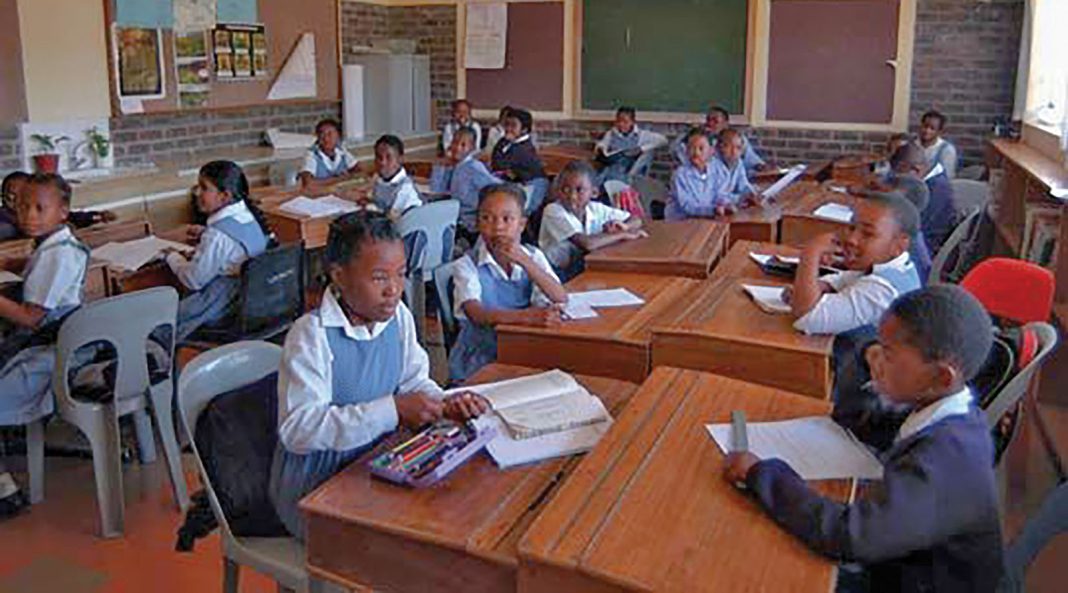The Lesotho Schools Principals Association (LESPA) has called for an immediate overhaul of the current curriculum to improve the quality of education in the country.
Speaking at a press conference in Maseru on Tuesday this week, LESPA public relations officer, ‘Matṧoanelo Lichaba, highlighted the urgent need for introspection and reform within the educational landscape.
Lichaba indicated that the association is planning to hold an annual conference on September 25 to raise awareness on the critical challenges threatening the country’s education sector and seek ways of addressing them.
“This conference is not just a talk shop; it’s a call to action. The discussions will delve into the 11 major threats that have been identified as hindrances to the educational progress of students in Lesotho.
“We’ve identified 11 critical threats to education; these are democratisation of school governance, financing of schools in Lesotho, the worth of principals in the 21st century, principals’ mental health, prolonged acting without pay and law, new curriculum reforms for the ideal Lesotho, emerging leaders, young students voice, digitalisation in school, artificial intelligence, and school strategic planning,” she said.
Among the key issues to be addressed at the conference is the existing curriculum, which has been criticised for its structure that allows students to sit for exams only after three years.
Educators and parents argue that this approach has led to complacency on the part of learners, prompting the need for immediate modifications. The changes being proposed come from feedback received during a previous conference held in 2022, where teachers and parents voiced their concerns regarding the curriculum’s effectiveness.
In response, the government has introduced a three-tier model categorising learners into artisans, vocationalists, and academics, aiming to better align education with students’ skills and interests.
The return of Grade 12 and Grade 7 examinations is also set to reshape the country’s educational framework. These grades will now feature both school-based assessments and end-of-level exams, ensuring that students are evaluated comprehensively.
Lichaba noted that results will be made public, promoting transparency and accountability in the process.
Notably, students will have the freedom to choose their subjects, with only four mandatory subjects required for those pursuing artisan-related pathways. This flexibility is expected to empower students to take ownership of their educational journeys.
In an interview with theReporter, LESPA president Mathafeng Moteuli elaborated on the significance of these changes. He announced that Grade 7 examinations will be reinstated, providing an opportunity for those who do not pass to continue their education without being held back.
“We aim to prevent stagnation at any level of education. Remedial classes would be available for struggling students to help them select skill development subjects that align with their interests,” Moteuli asserted.
He also pointed out that the reintroduction of Grade 12, akin to Advanced-levels, would serve as a pivotal year, preparing students for university education.
These reforms are essential for Lesotho, which has been lagging in educational development compared to global standards, he added.
“We must adapt to ensure our students are competitive internationally,” Moteuli stated, indicating however, that not all feedback has been overwhelmingly positive.
A concerned parent, ‘Mamoleboheng Ramoseeka, has some reservations regarding the new curriculum.
“Students still struggle to write on their own, and substantial work is needed to bridge this gap,” she remarked in an interview with this publication this week.
Ramoseeka questioned the feasibility of pursuing passions in a country with economic constraints saying: “We live in a country where passion can’t even feed you.”
But despite her worries, she remains hopeful that the changes would lead to a brighter path for learners.
A local student, Liteboho Makhaola, shared her perspective on the new curriculum, noting that it allows for a broader showcase of talents.
“We have the opportunity to demonstrate our skills in the classroom, not just in sports as it was with the old curriculum,” she explained.
Makhaola’s sentiments reflect the potential positive impact of the reforms on student engagement and creativity, as the new system encourages a more holistic approach to education.
As the conference approaches, anticipation is building among educators, parents, and students alike. The stakes are high, and the outcomes of the discussions at the annual LESPA conference could very well shape the future of education in Lesotho.
With the commitment of the association to address these critical issues head-on, there is hope for a revitalised educational system that not only meets the needs of students, but also prepares them for the challenges of the modern world.








